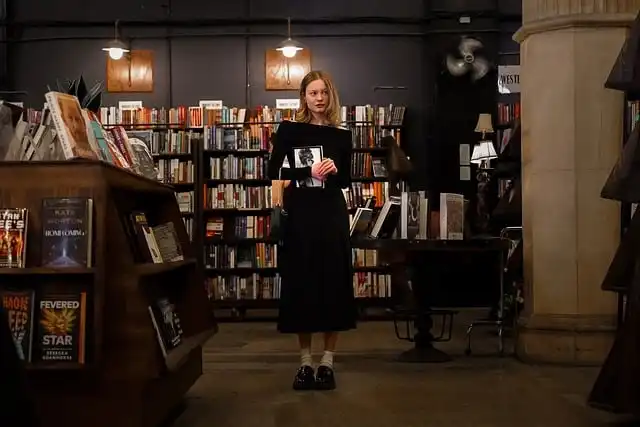
A: Institutional nonpartisanship indicates [asking], “Am I taking a placement that exceeds that core function of the college?” … It’s not about being silent constantly. Obviously, you can talk to your neighborhood, but you have to be careful that you restrict your comments and concentrate your talk about the values related to the core objective of the college, like gain access to for trainees, financial assistance, research assistance for your professors. These are all related to values, but they belong to the core purpose of the university.
A: Institutional neutrality adheres to from the purpose of the college. The institutional neutrality concept is deeply connected or grounded in the purpose of what is often called a liberal arts education, in which colleges want to have multiple viewpoints, and have pupils to deeply involve with them, that doesn’t say, “This is right” or “That’s right,” that motivates debate, not settles it.
That saliency is now leading college head of states and their boards to understand the knowledge of the placement of institutional neutrality.
A: Whatever that colleges can do where they clearly verbalize their objective, and act as necessary, will certainly assist bring back trust. The objective of colleges is honorable, with tremendous positive benefits for culture. If we’re deviating from that, or we’re not acting according to our objective and the worths that support that, that’s when we get into difficulty. So the reaffirmation of that is an extremely, great idea, and it would assist with recovering count on.
A: My strong expectation is that this movement will certainly continue. People are appreciating the knowledge of institutional nonpartisanship; they identify it sustains the core goal, and it additionally helps to avoid, or a minimum of minimize, the politicization on campus.
Now, if you don’t want that, if you have a different purpose, after that, certainly, the concepts that feature that have to fit that purpose. You can’t have it both ways. You can’t claim, “We want to have a complimentary circulation of ideas for both sides, and incidentally, we have a dynamic or traditional worth alignment.” That’s not going to function … I do not have an issue if people state, “We have a specific political orientation.” Your principles have to be clear along those lines.
I was provost at University of Chicago for 4 years prior to [involving Vanderbilt] The Kalven report, of course, is an extremely fundamental part of just how the College of Chicago has actually considered [speech] for decades. When I was provost [I would certainly say that throughout these four years 2016 to 2020], the main emphasis was actually on complimentary expression– the Stone record, the Chicago concepts– since the major problems were speakers being screamed down and things like that, not so much institutional nonpartisanship.
Q: Historically, head of states and chancellors have actually frequently been looked to as ethical leaders, and some use their platform to strike positions on issues. What do you consider this notion that college leaders are backing away from the general public dispute by not speaking up on problems?
A: If you are thoughtlessly– or maybe deliberately– taking positions on one side or the other, you will certainly hear it from the various other side, and you will hear it extremely vigorously. That’s just one more instance of how this certain problem made the advantages of a position of institutional nonpartisanship more show. It still took a long time for individuals to come around.
A: Vanderbilt has actually had a dedication to institutional nonpartisanship considering that the late ’60s, early ’70s, and it was first articulated by our 5th chancellor, Alexander Heard. When I showed up on school, the speech that I offered to the neighborhood in my launch, I spoke concerning the relevance of cost-free expression and institutional neutrality.
Vanderbilt College chancellor Daniel Diermeier has emerged as a solid supporter for institutional nonpartisanship in the last few years, arguing that establishments frequently surpass their core mission when they strike stances on public concerns. He stated on those sights in a meeting with Within Greater Ed in which he went over the expanding number of organizations that have embraced institutional nonpartisanship and how tensions in the Middle East and relevant protests on campuses are driving university leaders to reassess exactly how they engage on contentious concerns in the house and abroad.
Q: After Oct. 7, many presidents launched statements, and a lot of them were skewered. Do you believe the pushback to and possibly missteps in some of those declarations has been a consider a lot more leaders taking on institutional neutrality policies?
A: Your No. 1 obligation is to your college and to the globe of greater education and learning. You are the leader of an university, and focusing on that goal and that purpose is plenty and it’s very vital.
Q: Public rely on college is obviously rather reduced, whether that mores than issues of pupil roi or perceptions about ideology. Do you assume a position of institutional neutrality taken on extensively by organizations can assist restore rely on college?
The College of Chicago and Vanderbilt have always translated institutionality as also using to actions– not simply words– due to the fact that the fundamental issue is position taking. Are you taking a placement on a political or questionable and social concern that goes beyond the core functioning of college?
A: Institutional neutrality adheres to from the purpose of the university. The institutional nonpartisanship principle is deeply linked or grounded in the objective of what is often called a liberal arts education and learning, in which colleges desire to have several perspectives, and have students to deeply involve with them, that does not claim, “This is best” or “That’s right,” that encourages argument, not resolves it.
Now the emphasis, I believe deservedly, is not so much on free speech; free speech conversations are just a red herring right currently. The real issue is over institutional nonpartisanship. Due to the fact that the pupil militants– in specific, the pro-Palestinian groups– have asked colleges to take an extremely clear placement versus Israel in words, but likewise through the endowments and by boycotting Israeli vendors or suppliers that do service with Israel.
When you have a catastrophe, for instance, that affects the participants of the community deeply, I think there is a need for the leader of the organization, a president or chancellor, to have a pastoral feature, where you attach with the community mentally, with compassion, with the suffering, with the concerns that they have. It’s not concerning setting taking on policy issues. What you should not do is currently come down with a setting on gun control; that’s a policy problem.
A: Position taking by colleges was constantly a trouble. Now the concern … is front and center to the disputes on school. That saliency is now leading university presidents and their boards to realize the knowledge of the position of institutional neutrality.
Institutional neutrality ought to not just be exercised by colleges, yet by professional associations too … When the American Sociology Organization condemns Israel genocide, that is very troublesome since the expert associations are necessary gatekeepers in the world of the academy. They give out honors and recognitions, they arrange seminars … and they publish scholastic journals, which are crucially important … The tragic choice by the American Association of College Professors to enable scholastic boycotts makes it also worse.
The University of Chicago and Vanderbilt have actually always analyzed institutionality as likewise applying to actions– not just words– due to the fact that the fundamental issue is setting taking. Are you taking a placement on a political or controversial and social issue that goes past the core functioning of college?
Q: Some colleges make their political leanings extremely clear, both conservative and liberal organizations. Can those that are freely political adopt a position of institutional nonpartisanship? I can not wonder but help to some extent if that would hurt their marketing or recruiting efforts since they are drawing a particular type of pupil.
1 chancellor Daniel Diermeier2 institutional neutrality
« Faculty heavily back Harris—but they won’t tell students toHarvard’s billion-dollar disappointment »
